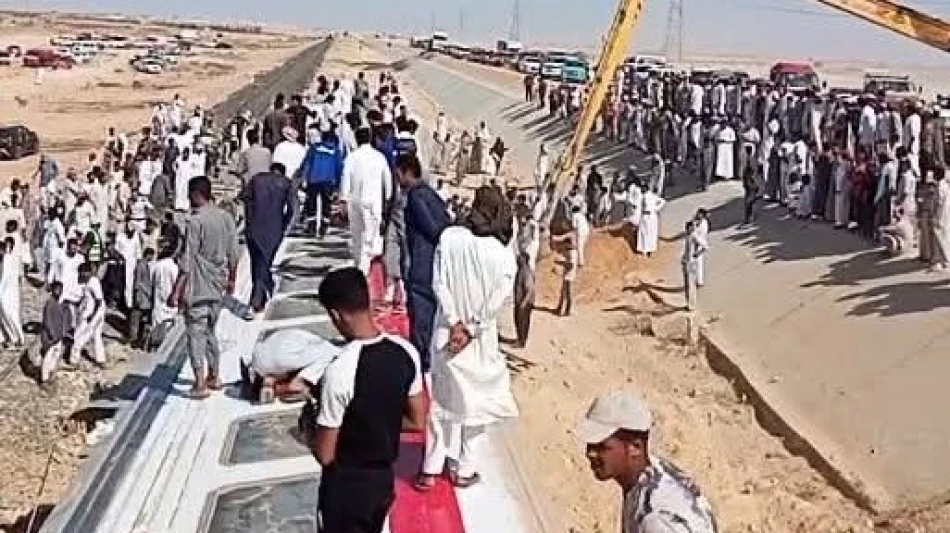
Train Derailment in Egypt Leaves Fatalities and Dozens Injured
Egypt Train Derailment Claims Three Lives as Railway Safety Crisis Deepens
A passenger train traveling from Alexandria to Marsa Matrouh derailed in Egypt's northwestern Matrouh Governorate on Saturday, killing three people and injuring 54 others. The latest incident underscores Egypt's persistent railway safety challenges, as the country struggles to modernize its aging rail infrastructure despite repeated promises of reform following previous deadly accidents.
Emergency Response and Medical Treatment
Egyptian Health Minister Khaled Abdel Ghaffar is personally monitoring the aftermath of the derailment, according to the Ministry of Health and Population. Medical teams rushed to distribute the 54 injured passengers between two facilities: 33 were transported to Dabaa Central Hospital, while 21 received treatment at Ras El Hikma Hospital.
Healthcare workers continue assessing patients' conditions while ensuring adequate blood supplies and derivatives are available for ongoing medical care. The swift medical response suggests authorities have developed more effective emergency protocols following previous rail disasters.
A Pattern of Railway Failures
This derailment adds to Egypt's troubling record of train accidents, which have plagued the country for decades. The Alexandria-Matrouh route serves a critical tourism corridor along Egypt's Mediterranean coast, making safety failures particularly damaging to the country's economic recovery efforts.
Infrastructure Investment Challenges
Egypt operates one of the oldest railway networks in the world, with many sections dating back to the 19th century. While President Abdel Fattah el-Sisi's administration has announced billions in railway modernization projects, implementation has been slow and uneven across the 5,000-kilometer network.
The government faces competing priorities as it balances railway upgrades with other mega-projects like the New Administrative Capital, while managing ongoing economic pressures from inflation and currency devaluation.
Economic and Tourism Implications
Railway accidents directly threaten Egypt's tourism recovery, particularly along coastal routes that connect Alexandria to Mediterranean resort destinations. International visitors and Egyptian families alike rely on train services during peak summer months, when road travel becomes less attractive due to heat and traffic congestion.
Each major accident erodes public confidence in rail transport, potentially pushing more travelers toward already overcrowded highways or forcing them to cancel trips entirely. This shift impacts local economies in tourist destinations that depend on reliable transportation links to major population centers.
Regional Context and Modernization Efforts
Unlike Gulf states that have invested heavily in modern rail systems—such as the UAE's Etihad Rail project or Saudi Arabia's high-speed Haramain line—Egypt must retrofit existing infrastructure while maintaining daily operations for millions of passengers.
The challenge resembles India's railway modernization efforts, where authorities must balance safety improvements with maintaining affordable transportation for large populations. However, Egypt's smaller economy limits available resources for comprehensive system overhauls.
Path Forward Requires Sustained Commitment
Saturday's derailment will likely prompt renewed calls for accelerated safety measures and infrastructure investment. However, meaningful change requires sustained political will and financial commitment beyond immediate post-accident responses.
Egypt's railway future depends on successfully implementing systematic upgrades to tracks, signals, and rolling stock while improving maintenance protocols and staff training. Without such comprehensive reform, similar tragedies will continue undermining both public safety and economic development goals.
Most Viewed News

 Layla Al Mansoori
Layla Al Mansoori






